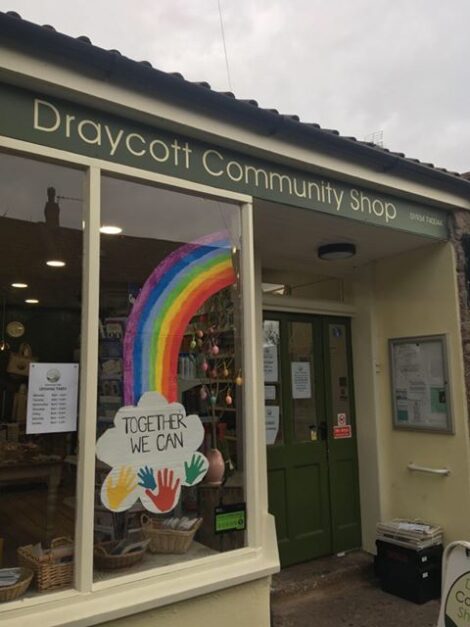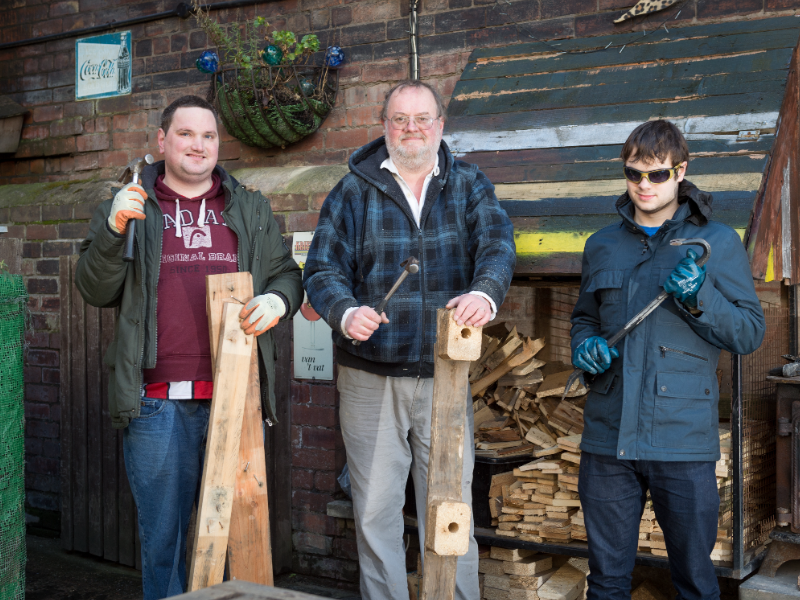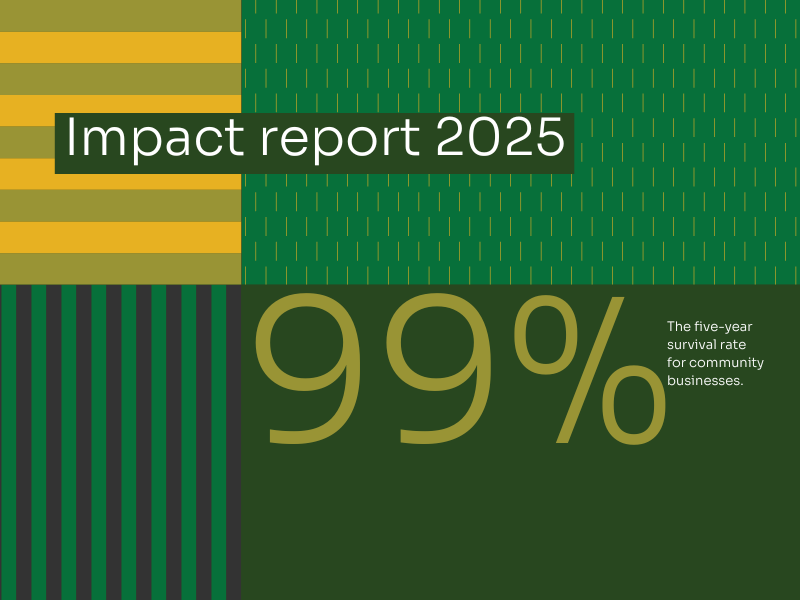Plunkett’s Impact Officer, George Ogier, explores what equity, diversity, and inclusion means for rural communities
The World Health Organisation defines equity in part as: “the absence of unfair, avoidable or remediable differences among groups of people”.
The idea of striving to ensure that everyone is afforded the same opportunities should be central to life – and community-owned businesses are no different.
As a result, Plunkett UK is committed to promoting equity, diversity, and inclusion by creating safe and welcoming spaces for all. We see first-hand the power of communities coming together to create a nurturing environment for the people around them and that starts with fairness and inclusivity.
We speak at length with community-owned businesses about EDI and one suggestion we hear regularly is that ‘rural areas lack diversity’. For many people, diversity has come to represent race, gender, or sexuality but it is far more varied. Diversity exists in every community, even if it isn’t immediately apparent.
Some examples of diversity in a rural community include young people, invisible disabilities or needs (neurodiversity), minoritised communities, refugees or migrants, and carers. We also consider victims of domestic violence or past trauma such as refugees, single parents, people in poverty, isolated people, ex-offenders, and veterans as part of society’s diversity.

Draycott Community Shop, Somerset
For businesses to be truly community-owned, everyone living locally should have a chance to be involved. Whether it be the committee, volunteer, staff, investor, or customer, groups should strive to remove as many barriers to entry as possible. Barriers can come in many forms and are often both systemic and accepted; that’s just how it’s always been. Tackling these barriers can be a daunting task and people are sometimes afraid to get things wrong.


Last year, Plunkett UK ran the first in a series of Special Interest Groups around EDI and also the environment. These groups were an opportunity to discuss ideas around both subjects with representatives from a range of community-owned businesses. At their core, both groups were a safe space to discuss the challenges around tackling barriers.
The first thing we learned is that groups are often doing far more than they realise! In most cases they were starting small, making incremental changes to help customers and those who wanted to volunteer. We also heard stories of roles that catered to abilities.
A fantastic example of this was a gentleman with excellent DIY skills who wanted to be involved but felt awkward in social situations. He now makes a weekly visit to the shop to pick up items in need of repair so that they can be used again or sold with the money going to local causes.
How do we ensure that opportunities exist for all?
‘Who isn’t here?’ It was a question posed at the 2024 Plunkett UK conference by Veda Harrison from The Esmée Fairbairn Foundation.
In any collaborative project, are we taking the time to ask if anyone is missing from the dialogue? Who might be affected by what we’re doing and are they being given a chance to voice their opinions.
This is a particularly pertinent point when it comes to community-owned business. To have a greater chance of success, these businesses should reflect the communities in which they sit.
Historically, businesses have focused solely on the bottom line but there has been a shift towards a sustainability framework – the triple bottom line. Broadening business plans beyond just economics to also include equity and the environment. The idea is that if you give credence to the value of all three, your business will create a roadmap to positively impact society.
Veda Harrison, Director at Esmee Fairbairn Foundation, spoke in the ‘Creating impact through volunteering, training and employment’ panel at the National Community Business Conference 2024

I have recently taken on the role of Impact Officer at Plunkett UK. A central strand of work for this new position is to embed our values and strategies internally but to also explain why we believe them so strongly and how they can help community-owned businesses achieve their goals.
Over the next 12 months, we plan to deliver around 20 events. From webinars which will aim to outline work around our areas of impact, to networking events for the devolved nations, we want to shine a light on social impact with EDI being a large part of that.
Community-owned businesses, by their nature, exist to improve the lives of everyone in the community where possible. By making sure we strive to be inclusive, we make people feel like they are part of something bigger.
You can take a deeper dive into the work of groups up and down the UK via our recently published Impact Report.
Contact us to get involved!
We’re all at different starting points, and we all have things to learn! If you would like to find out more about our commitment to Equity, Diversity & Inclusion or you want to share your stories, then contact us on info@plunkett.co.uk.





